Sudan
Behind the bloody struggle between two generals in Sudan is also the competition between populations who historically monopolize power and resources, and the most marginalized components of this ethnic mosaic, according to specialists.
Between General Abdel Fattah al-Burhane and General Mohamed Hamdane Daglo, the contrast is obvious.
The first is a lackluster career soldier, born north of Khartoum. The second, a colorful commander of the paramilitary Rapid Support Forces (RSF), appeared as a militia leader from Darfur, in Chad's western border, and is mocked in the capital for his provincial accent.
“Sudanese political society is centered on the Nile Valley,” emphasizes Marc Lavergne, a specialist in the Horn of Africa and the Middle East.
"This war is also the result of the economic and social upheaval that Sudan is experiencing, and which no government in Khartoum has been concerned about since there is this dichotomy between the Nile Valley, Khartoum, useful Sudan of which the English spoke " and the rest of the country," he told AFP.
"But today it is these peripheral regions that are the richest in potential", he continues, in particular referring to the gold mines of Darfur from which General Daglo, nicknamed "Hemedti", built an economic empire. and commercial.
Thanks to these riches, "the RSF are no longer a makeshift militia but an efficient and well-trained fighting force that can compete with the Sudanese army militarily and now represents a threat to its political and economic ambitions", summarizes in a published note the Rift Valley Institute research center, based in Sudan, on Monday.
"The current conflict constitutes a battle between the established military-political elite in the center of the country and an emerging militarized elite in Darfur for control of the state and a new phase of the struggle between the center and the periphery", adds- he.
“There are a lot of fault lines” between the two camps, says Kholood Khair, founder of the Khartoum-based think tank Confluence Advisory, “Hemedti being thus described as an intruder from Darfur in a more cosmopolitan Khartoum”.
"Before the conflict, the FSR managed to convey the message that they were fighting for democracy, and on behalf of all the marginalized populations of Sudan," she says. She also mentions the massive recruitment by "Hemedti, one of the best employers in the country" thanks to his fortune, in regions "historically marginalized by Khartoum".
"Once the war broke out, this discourse became more difficult to hold because its troops are much less disciplined than the army," said Kholood Khair. "They do not always follow orders and have created a lot of trouble for the inhabitants of Khartoum", where stories of housing occupations, looting, and other abuses are increasing.
In this deeply mixed country, at the confluence of population movements and marked until recently by centuries of slavery, the central power has long exploited the inequalities linked to the pigmentation of the skin of the inhabitants of the periphery, in particular of the South which seceded in 2011, in order to divide and conquer.
"Until now, the Sudanese have a skin color chart that ranges from red and brown through green and yellow, to blue - the darkest southern populations, still commonly referred to as abid, that is to say, slaves", recalls Alex de Waal, specialist in Sudan, in the London Review of Books.
But this criterion appears to have little significance in the current conflict, according to the experts, much less than the solidarity and tribal affiliations on which the numerous militias present throughout the country are formed, a factor whose importance is likely to increase over the course of the prolonged fighting.
"As their losses progress, both sides will have to recruit new troops", predicts Kholood Khair. "And the best way to recruit in Sudan is historically to do so by ethnic allegiance".



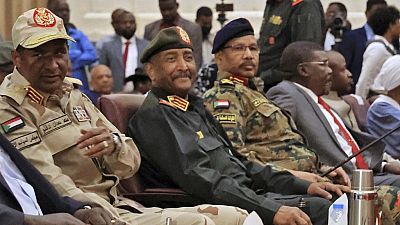

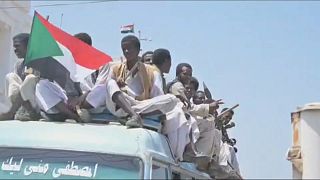
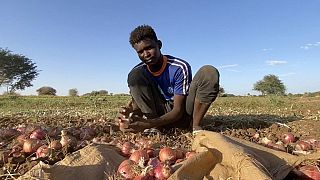
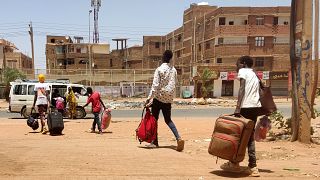
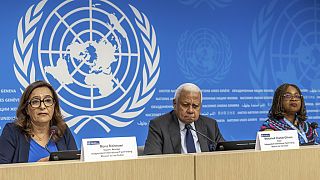
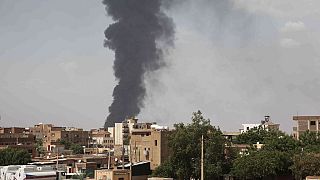
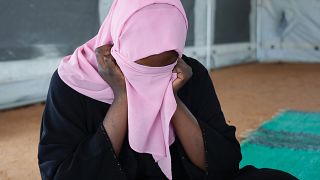



02:09
Russia vetoes UN resolution calling for immediate cease-fire in Sudan
01:07
Sudan keeps key aid crossing from Chad open to keep humanitarian aid flowing
01:43
UNICEF calls for urgent action on Sudan’s “forgotten crisis”
00:59
RSF militia accused of 'massacre' in Sudan's Gezira state
01:08
Africa reports 134 new polio cases on World Polio Day
Go to video
Russia probes alleged cargo jet shoot-down in Sudan's Darfur